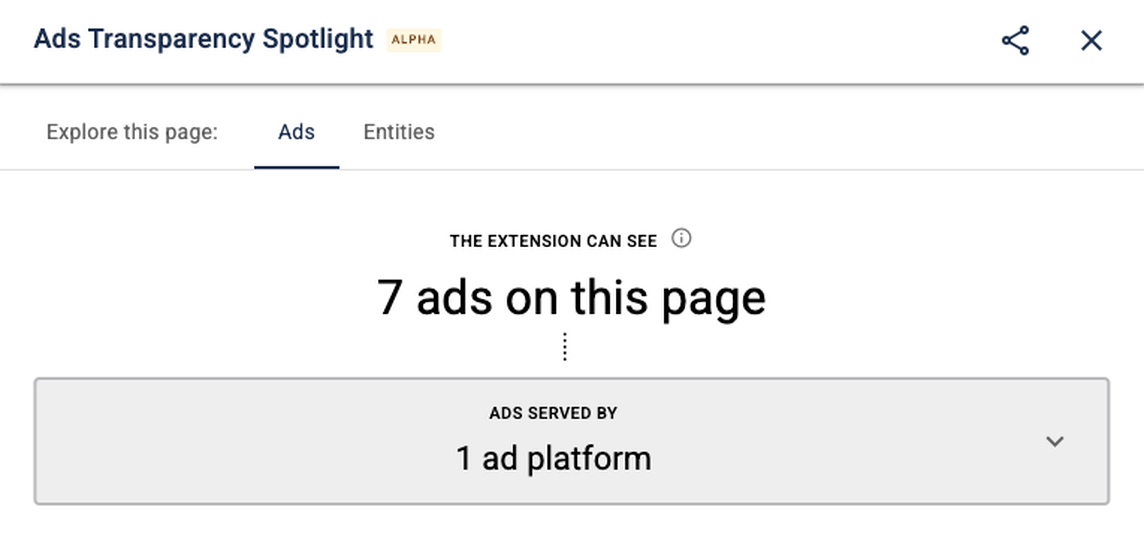Ads are an inescapable part of our online lives. Even if you have an extreme case of banner blindness, like me, the ads are still there, tracking you, often in ways you wouldn’t approve if you had a say in it.
To help alleviate this, Google has launched a new Chrome extension called Ads Transparency Spotlight. The extension, freely available in the Chrome web store, aims (per Google’s description) to “give people more visibility into the data used to personalize ads and more control over that data.”
In practice, click on the extension’s icon while visiting a webpage, and you’ll be shown how many ads are on that particular page, how many platforms they’re served by, and a list of entities with a presence on the page. Clicking on any entity on the page will lead you to its legal policy regarding ads and tracking.

Image: stan schroeder/google
Google says it’s exploring adding more features, and is asking users to leave feedback so it can continue improving the extension.
There are limitations. Currently, the extension only shows information about the ads purchased through Google Ads that have implemented the Ad Disclosure Schema, meaning they’ve added a specific piece of metadata to their ads, essentially telling Google what they’re doing on the page. This likely means that the ads likely to use more nefarious ways of tracking users won’t be recognized by the extension at all. Google says it hopes that more of the ad industry will start incorporating the Ad Disclosure Schema into their ads, but don’t count on all of them ever doing it.
The extension, which has been released as an alpha version, is a bit wonky at this stage; it worked on approximately half the pages I tried it on. But it’s a nice step forward towards providing the people with more transparency on the ads they see online.
There are other ways of tracking the ads on the sites you visit. A popular extension called Ghostery shows you info about trackers on websites and goes a step further by letting you hide ads. It’s also available for most popular browsers. The EFF’s Privacy Badger is another example, allowing users to automatically block unwanted trackers and ads.
